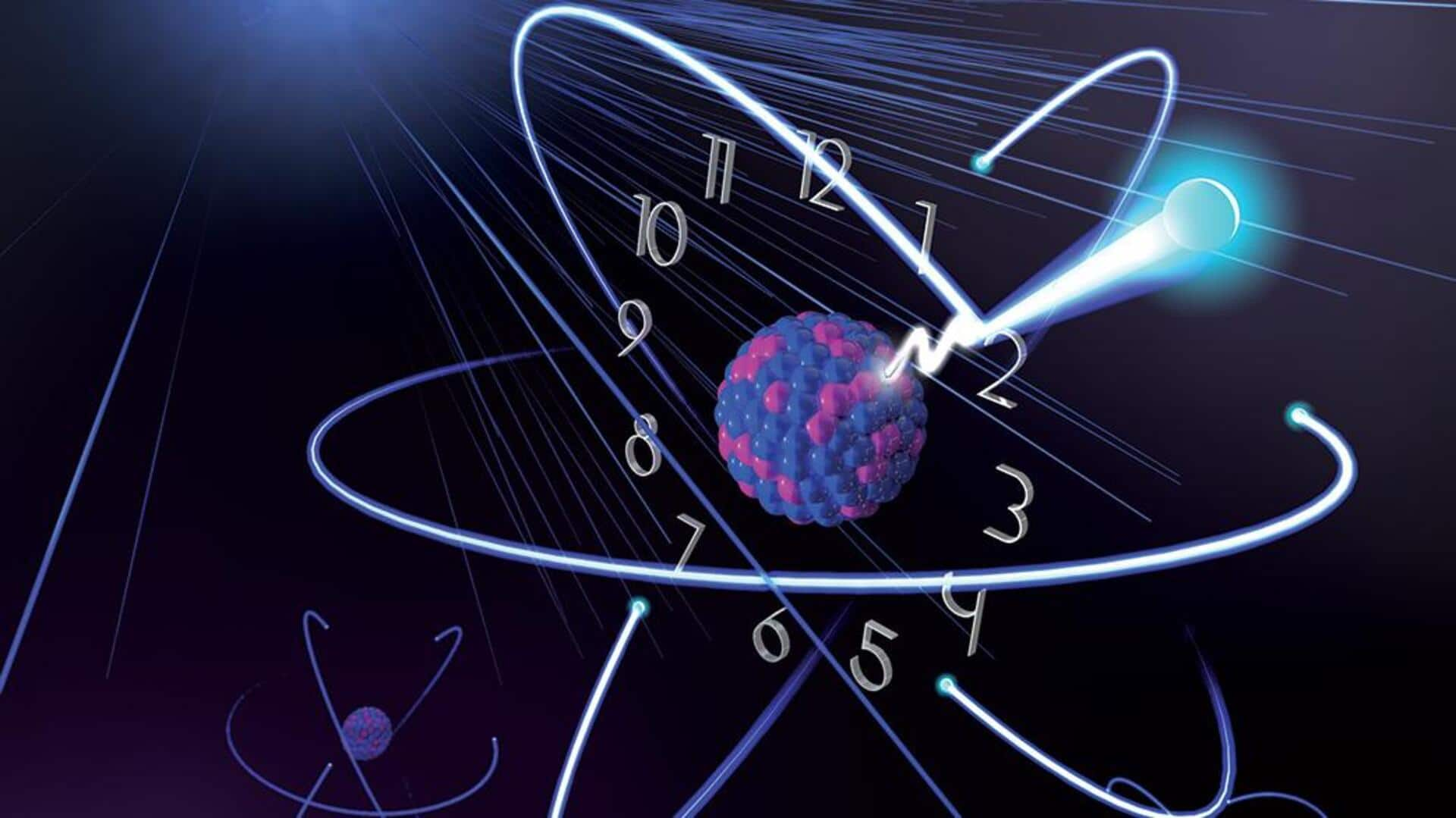
New atomic clock loses only a second every 30B years
What's the story
Scientists at JILA, a joint institution of the National Institute of Standards and Technology (NIST) and the University of Colorado Boulder, have developed an atomic clock with unparalleled accuracy.
The groundbreaking device loses only one second every 30 billion years, doubling the precision of its predecessor.
"This clock is so precise that it can detect tiny effects predicted by theories such as general relativity, even at the microscopic scale," said NIST and JILA physicist Jun Ye.
Atomic precision
Innovative timekeeping device uses supercooled strontium atoms
The new clock operates by trapping tens of thousands of atoms and measuring time through the consistent movement of electrons around these atoms.
Unlike standard clocks that use cesium atoms, this device uses supercooled strontium atoms for timekeeping.
"We're exploring the frontiers of measurement science," said Ye, emphasizing the significance of this development.
The methods used to control supercooled atoms could also be applied in quantum computers, which use atoms near absolute zero as bits for their operations.
Unmatched accuracy
Strontium atomic clock ticks trillions of times per second
Unlike average atomic clocks that operate at microwave frequencies, strontium atomic clocks operate at optical frequencies.
This new clock "ticks" trillions of times per second and is accurate to within 1/15,000,000,000 of a second per year.
If such a clock started ticking at the beginning of the universe, it would still need the universe to be more than twice its current age to lose a second.
This level of precision is pushing the boundaries of what's possible with timekeeping.
Gravity impact
Clock's precision detects relativistic effects, aids space navigation
The clock's precision allows it to detect relativistic effects on its timekeeping, as per Einstein's theory of general relativity.
If the gravitational field around the clock changes, it will register this change.
This ability will be significant when NASA and its partners implement a separate time zone for the Moon due to gravity causing lunar clocks to run marginally faster.
As humans venture further into space, precise atomic clocks like this one will be crucial for error-free navigation.